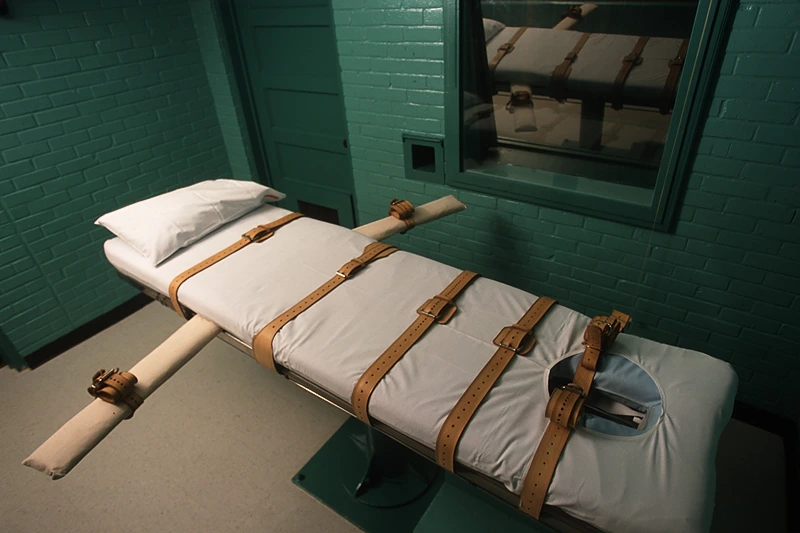

OAN’s Shawntel Smith-Hill
11:19 AM – Friday, July 21, 2023
James Barber was executed early Friday morning at the William C. Holman Correctional Facility in Atmore. Barber’s execution was done via lethal injection and marks the continuation of the death penalty in Alabama following a series of failed lethal injection attempts in the state.
Advertisement
The Alabama Department of Corrections said in a statement that physicians pronounced Barber deceased at 1:56 a.m. local time.
Barber, who was 64 when he died, was convicted and sentenced to death 22 years ago for the murder of 75-year-old-Dorothy Epps, whom Barber confessed to bludgeoning to death with a claw hammer after robbing her and fleeing her home in the town of Harvest, Alabama.
The U.S. Supreme Court ultimately rejected Barber’s request for a stay. Barber expressed concern that he could potentially be subjected to “substantial harm” after the state failed to carry out three previous executions by lethal injection.
The execution was confirmed after a federal appeals court panel denied Barber’s request in a 2-1 ruling.
State Attorney General Steve Marshall said Barber had been Epps handyman and had a previous relationship with her daughter. Marshall agreed with the 11th U.S. Circuit Court of Appeals’ ruling.
“Justice has been served. This morning, James Barber was put to death for the terrible crime he committed over two decades ago: the especially heinous, atrocious, and cruel murder of Dorothy Epps,” Marshall said in a statement Friday morning following the execution.
He continued: “I ask the people of Alabama to join me in praying for the victim’s family and friends, that they might now be able to find some sense of peace and closure.”
The Republican governor of Alabama, Kay Ivey (R-Ala.), said that a “brief pause in executions was necessary to make sure that we can successfully deliver that justice and that closure” to victims’ families.
Many critics of the state’s capacity to carry out these executions cited concerns that the three-month-long review of the state’s execution protocols should have been carried out by an outside agency. At this time, no details about the review’s findings have been released.
State Corrections Commissioner John Hamm said that a series of internal changes, including new equipment, increased staffing, and additional rehearsals, were made after Ivey announced in February that the state was cleared to resume executions.
Stay informed! Receive breaking news blasts directly to your inbox for free. Subscribe here. https://www.oann.com/alerts






Be the first to comment